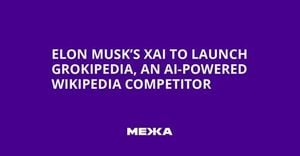Electronic Arts, the iconic publisher behind franchises such as Madden NFL, Battlefield, and The Sims, is on the verge of a seismic transformation. On October 4, 2025, it was announced that EA would be acquired for $52.5 billion in what could become the largest private equity buyout in history, as reported by NSJ Online. The deal, which also factors in $2.5 billion in debt, brings the total value to a staggering $55 billion—far outpacing the previous record $32 billion leveraged buyout of Texas utility TXU in 2007.
The buyers are a formidable trio: Silver Lake Partners, Saudi Arabia’s sovereign wealth fund Public Investment Fund (PIF), and Affinity Partners, the investment firm run by Jared Kushner, former President Donald Trump’s son-in-law. They have agreed to pay EA shareholders $210 per share, a premium that has drawn mixed reactions from investors and analysts alike.
For EA, this marks the end of a 36-year era as a publicly traded company. Since its IPO in 1989, EA has been a mainstay on Wall Street, its fortunes rising and falling on the success of its blockbuster gaming franchises. The company’s CEO, Andrew Wilson, who has led EA since 2013, will remain at the helm as the company transitions to private ownership. Its headquarters will stay rooted in Redwood City, California.
“Electronic Arts is an extraordinary company with a world-class management team and a bold vision for the future,” Kushner said in a statement quoted by NSJ Online. “I’ve admired their ability to create iconic, lasting experiences, and as someone who grew up playing their games—and now enjoys them with his kids—I couldn’t be more excited about what’s ahead.”
The deal is not just about big numbers and famous names. It also signals a new phase for the global video game industry, one that’s increasingly shaped by state-backed investment and private equity muscle. According to Slate Magazine, Saudi Arabia’s PIF has been on a gaming acquisition spree since 2022, taking minority stakes in major publishers and outright purchasing companies like ESL, FACEIT, and Scopely. The EA acquisition, however, is by far its largest and most consequential move yet. PIF, which already held a 9.9% stake in EA, will roll over its investment as part of the transaction.
Industry analysts have been quick to weigh in on what the deal could mean for EA’s future. As reported by MSN Money, the $55 billion buyout comes with a heavy burden: approximately $20 billion in new debt. Philip Alberstat, managing director at DBD Investment Bank, believes EA’s robust annual revenues—estimated at $7.5 billion from franchises like Apex Legends, Battlefield, and FIFA (now EA Sports FC)—give the company the capacity to handle the debt. Alberstat contrasts EA’s situation with the infamous Toys ‘R’ Us bankruptcy, arguing that EA’s strong live service revenues provide a far more stable foundation.
Still, the debt load is raising eyebrows. Mike Hickey of The Benchmark Company questioned whether the $210 per share offer truly reflects EA’s intrinsic value, especially with the anticipated launch of Battlefield 6 and a pipeline that could add more than $2 billion in incremental bookings by fiscal year 2028. “With Battlefield 6 about to launch and a pipeline that could add more than $2B in incremental bookings by FY28, the true earnings power of EA is only beginning to emerge,” Hickey wrote, as cited by NSJ Online. He went further: “In our view, this transaction is a self-serving, opportunistic move by management and the investor group. Management has long been rumored to seek a sale around $200 per share, a level that may have been defensible in prior years but not in the current environment where visibility into growth, franchise momentum, and pipeline strength is far more robust. The board’s decision to recommend a sale at $210 per share suggests a prioritization of near-term certainty and legacy over maximizing long-term shareholder value.”
For employees and fans, the buyout has sparked a mix of anxiety and speculation. According to Gamingbible, fans of BioWare—the EA-owned studio behind the beloved Mass Effect and Dragon Age series—are particularly uneasy. The $20 billion in debt, they fear, could prompt the new owners to cut costs, potentially leading to layoffs at BioWare or even cancellation of projects like Mass Effect 5 if they are deemed insufficiently profitable. Some fans worry that the new ownership could also lead to creative restrictions, especially regarding LGBTQ+ representation, given Saudi Arabia’s laws and the political background of Affinity Partners.
Community members have voiced their concerns on social media and forums. One user, Collin_of_Rivia, commented, “Hmmm... what are the odds the Saudis will allow a game where a woman makes decisions and can be a lesbian?? I'm gonna say 0% lmao. Oh well, we will always have the trilogy I guess.” Another, Inevitable_Sector778, wrote, “This is pretty much the end for the Mass Effect IP. Its either gonna get cancelled or massively restricted by Saudi government and the US far-right movement.” These comments underscore a broader unease about the potential for censorship or creative interference under the new regime.
Industry experts, meanwhile, see both risks and opportunities. Phylicia Koh, general partner at Play Ventures, told MSN Money that being freed from public market pressures could, in theory, give EA more room to innovate. However, Emmanuel Rosier, director of market intelligence at Newzoo and a former EA strategist, warned that consolidation often leads to more cautious portfolio management, with publishers doubling down on proven franchises at the expense of experimental projects. “Publishers may double down on proven franchises rather than taking risks on experimental projects, which could narrow the creative pipeline over time,” Rosier noted.
This trend is not unique to EA. The 2020s have seen a wave of consolidation in gaming, with giants like Microsoft, Tencent, and Embracer snapping up studios and reshaping the industry. Alberstat believes this is creating a split market: blockbuster titles from capital-intensive publishers on one side, and a flourishing of creative, independent development on the other. “The industry isn't dying, it's splitting into two different models. You have capital-intensive blockbusters on one side and creative independent development on the other. Both can thrive,” he explained.
For now, EA’s new owners are expected to focus on their cash-cow live service franchises to ensure the company can manage its massive debt. But the future of other beloved series—Battlefield, The Sims, Apex Legends, Mass Effect, and Dragon Age—remains uncertain. As Rosier put it, “These IPs could be streamlined, spun out, or restructured through partnerships, depending on how the new owners assess profitability and growth potential, as well as the post-closing portfolio decisions.”
While the ink has yet to dry on the deal, and the gaming world waits to see what changes will come, one thing is clear: the acquisition of EA marks a turning point not only for the company, but for the industry as a whole.





